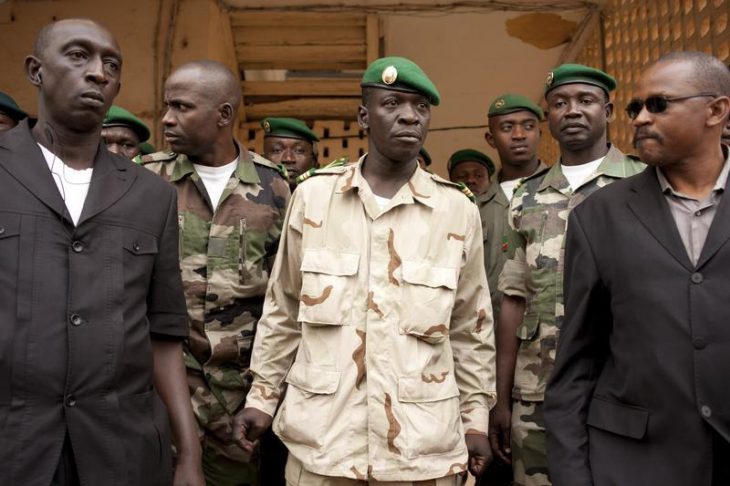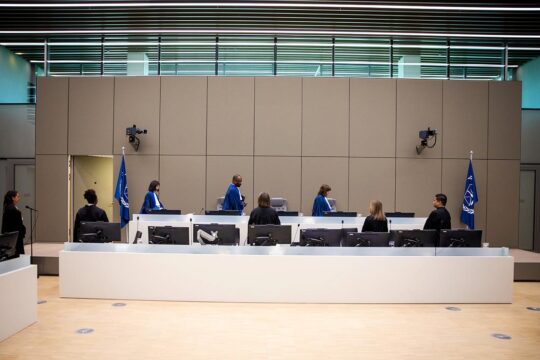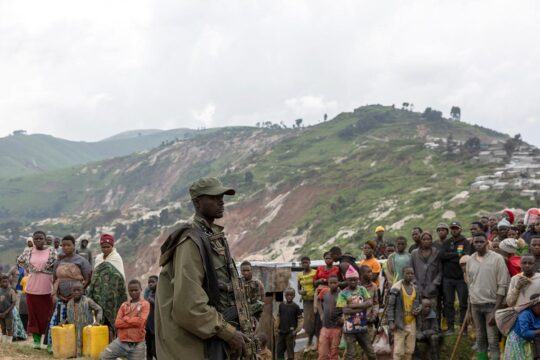(Dakar) – The trial of the leader of the 2012 coup in Mali, Gen. Amadou Haya Sanogo, and 17 co-defendants, including other members of the Malian army, is set to begin on November 30, 2016, in the southern Malian town of Sikasso. The defendants are accused of the 2012 abduction and killing of 21 elite “Red Berets,” who were detained and forcibly disappeared between April 30 and May 1, 2012, after being accused of involvement in an April 30 counter-coup against Sanogo and his loyalists.
The following statement is from Corinne Dufka, associate Africa director at Human Rights Watch:
“The trial of General Sanogo and his co-defendants represents clear progress in tackling the culture of impunity in Mali. For far too long, men like Sanogo were considered untouchable and above the rule of law. Today, the victims and family members of those allegedly abducted and murdered by the defendants are one step closer to getting justice.
“However, the progress represented by this trial, though significant, cannot bear the entire burden of fighting impunity in Mali. The loved ones of many other victims await justice for crimes by all sides during and after Mali’s 2012-2013 armed conflict. These crimes include the summary execution by armed Islamist groups of scores of Malian soldiers in Aguelhok, sexual violence and widespread pillage by various armed groups in the north, and the extrajudicial executions, enforced disappearances, and torture of suspected Islamists by Mali’s security forces.”
In 2012, Human Rights Watch interviewed 30 people with detailed knowledge of the enforced disappearances of some 20 “Red Beret” soldiers as well as the arbitrary detention, torture and mistreatment of dozens of others. The findings were published in a July 2012 press release.
Witnesses told Human Rights Watch that the abuses were committed by soldiers, policemen, and national guardsmen who had supported Sanogo since the March 2012 coup. The mother of one disappeared soldier said that her son had called her on the afternoon of May 1. “My boy sounded so frightened,” she said. “He said the military were arguing among themselves about whether or not to kill my son and the others being held with him… He was very afraid.”
Witnesses described seeing soldiers and policemen drag handcuffed and hogtied detainees along the ground; beat them with batons, sticks, and gun butts; and kick them in the back, head, ribs, genitals, and elsewhere. Others were stabbed in their extremities or burned with cigarettes and lighters on their backs, hands, arms, and ears. Some detainees were suffocated during interrogation; others were chained and handcuffed for days on end.
Witnesses at Kati military camp told Human Rights Watch that on May 3 between 2 a.m. and 3 a.m., soldiers removed the detainees and put them inside a military truck. One witness at the camp that night said: “They took them out, bound their hands and legs, and covered their eyes; they have never been heard from or seen since.” Another witness gave Human Rights Watch a handwritten list of 21 detainees seen taken from the camp.
This article was previously published by Human Rights Watch.






